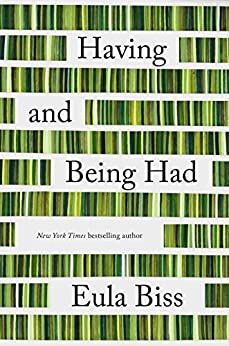More on this book
Community
Kindle Notes & Highlights
Perhaps we should all keep a memento of the Titanic, just to remind ourselves of how safe disaster feels.
if I were paid wages for the work of making art, then everything I do would be monetized, everything I do would be subject to the logic of this economy. And if art became my job, I’m afraid that would disturb my universe. I would have nothing unaccountable left in my life, nothing worthless,
“We are all communists with our closest friends,” David Graeber writes, “and feudal lords when dealing with small children.” We move between different systems of moral accounting, he writes, but all social systems, including capitalism, rest on a bedrock of everyday communism. By everyday communism he means the principle: “From each according to their abilities, to each according to their needs.”
For Miłosz, ketman was something like the art of passing. “To say something is white when one thinks it black,” he wrote, “to smile inwardly when one is outwardly solemn, to hate when one manifests love, to know when one pretends not to know, and thus to play one’s adversary for a fool (even as he is playing you for one).” That is the game of ketman.
artists don’t want secure jobs. They prefer flexibility,
The precariat is not easily recognizable as a class, even to itself. It includes convicts and asylum seekers and single mothers and artists. It includes educated people who can’t find the work for which they were educated. And people without college degrees who can’t find the kinds of jobs their parents and grandparents worked, in factories and coal mines. What they all have in common is a lack of security.
The precariat includes people who have forgone stable employment and retirement savings for temp work and travel and an uncertain future.
Art, he insists, can’t escape being property.
I will be granted a three-week stay at this estate, where I will discover how little time it takes to acquire the mindset of entitlement. The first time the housekeeper knocks on my door to change my sheets, I will feel grateful for the luxury, but the second time, I will be annoyed by the interruption.
The people here believe that if artists are successful then their success should produce all the money they need. And if they aren’t successful then they don’t deserve money.
Meaning, the lies we want to believe tell us something about ourselves.
But here’s the thing—she circles her womb with her hand—we are capital. We are the means of production. I had three children, she says. I’ve been the means of production. Now I want to own the means of production.
bicycles know that what keeps them safe on the street is not the law, but their own vigilance, quickness, and wit.
Cars don’t always signal their intentions. And cars aren’t always nice to each other, though they usually show each other some respect in deference to the damage they can do to each other. They are like important men in conversation with other important men. Bicycles are sometimes kindly accommodated by cars, often ignored, occasionally respected, sometimes nervously followed, and frequently not even seen. In this sense, riding in traffic is not unlike being a woman among men.
But publication is not where the pleasure is in writing.
It isn’t really his money unless he can use it the way he wants, I explain. And making mistakes with money is one of the best ways to learn how not to make mistakes with money.
the average American’s life expectancy is in decline, as inequalities of wealth have become inequalities of health.”
Pleasure is not necessarily harmful, he writes. But it “outrages that part of us which is concerned with growth.”
“Canted vertiginously over the tailrace.” It’s from Joan Didion’s essay about Hoover Dam,
“One cannot serve both beauty and power,” Connolly writes, quoting Flaubert: “Le pouvoir est essentiellement stupide.” Power is essentially stupid.
I was highly aware, in those first years, of my comfort. And I was uncomfortable with that comfort. I knew from past experience that the discomfort would fade and that my extraordinary new life would become ordinary with time.
“no useful distinction can be made between luxuries and necessities.” All the small necessities of my life, my reading and my writing, were luxuries.
And a common euphemism for being upper-middle class or rich is comfortable.
the rules of polite conversation around money: 1) Don’t talk about it. 2) If you do talk about it, don’t be specific. 3) Minimize what you have. 4) Emphasize that you’ve earned it. 5) Never forget that work is the story we tell ourselves about money.
The women, all modernists, all white and middle class or upper class, seemed to be stand-ins for me. They seemed to allow me to think about aspects of my life and work that would be difficult to think about more directly.
“Even allowing a generous margin for symbolism, that five hundred a year stands for the power to contemplate, that a lock on the door means the power to think for oneself, still you may say that the mind should rise above such things.”
Unquiet Grave, “an experiment in self-dismantling”?


